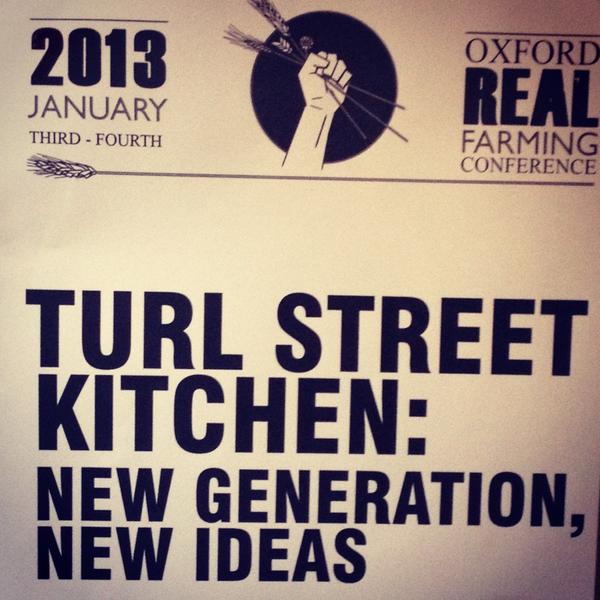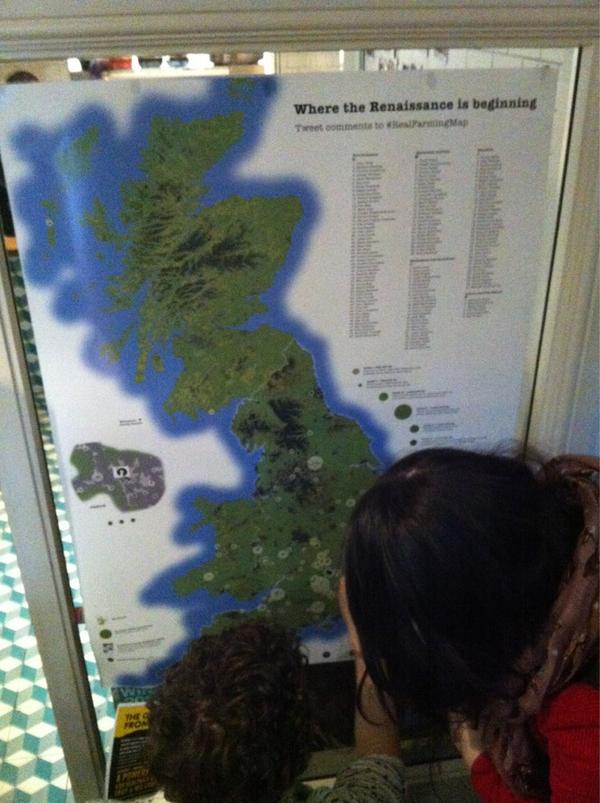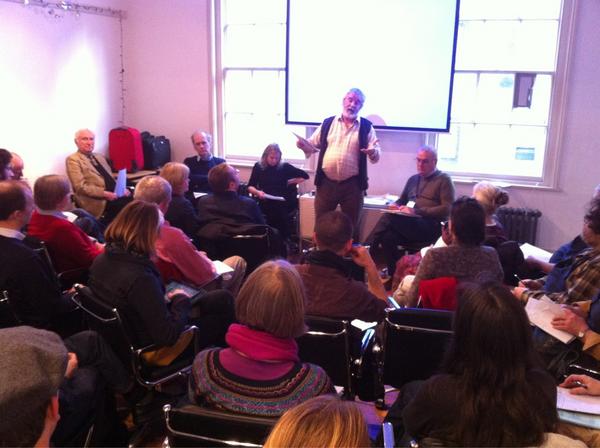Mark Simmonds reports on The New Agriculture – a big welcome to Energy Royd’s first guest writer.
I’m a co-operative business practitioner, helping set up and develop co-operatives. I have a particular interest in sustainable food enterprise, so I was particularly excited to attend the 4th Oxford Real Farming Conference on 3rd and 4th of January.
The Conference is run as a counter event and dose of reality for the Oxford Farming Conference. At the Farming Conference you could discuss the further intensification and industrialisation of agribusiness and “exciting” new technologies such as GM. Conversely, at the Real Farming Conference you could explore sustainable models of agriculture and exciting new business models which offer the possibility of the UK being self-reliant with regard to food rather than reliant on a fragile, oil dependent, export based system which is rapidly destroying the world’s soils whilst contributing significantly to greenhouse gas emissions and global warming.
At the Farming Conference, DEFRA told delegates that economic growth in agriculture was consistent with environmental concerns; meanwhile across the road, over 300 academics, activists, farmers, growers and smallholders shared ideas and insights into sustainable agriculture, including agroforestry, permaculture, community agriculture. The key difference was that at the Real Farming Conference we were actually talking about food.
Highlights for me were:
The coming together of representatives of many of the 100 plus UK Community Supported Agriculture (CSA) enterprises. CSAs are farming businesses in which growers and consumers share the risks and rewards of farming. There are many different models in the UK and worldwide, but in the UK CSAs owned by their customers (consumer co-operatives) predominate. In the CSA workshop the embryo of a national network of CSAs, which includes Hebden Bridge’s HebVeg, came together and there was a real excitement and energy in the room, which was the same one in which Oxfam started many years ago.
The launch of Via Campesina UK – the UK branch of a global alliance of people who work the land, campaigning for the rights of small producers and a better food system.
BBC Food and Farming Awards Farmer of the Year, Guy Watson of Riverford Organic, the UK’s largest organic veg. box scheme, took part in a workshop with me and the Plunkett Foundation to explore co-operation in agriculture. Guy is considering a co-operative option for the succession of his business, with the potential for the customers, workers and franchisees being the new potential owners of the business. Watch this space.
Manchester Veg People (MVP) were very well received when they showcased their exciting new business model for organic veg production and supply in and around Manchester. They have set up a multi-stakeholder co-operative of organic veg producers around Manchester and customers such as universities and restaurants in Manchester. MVP is revolutionary in that the internalisation of the trade within the co-operative allows the growers to be paid the actual costs of production and have a guaranteed market, rather than being forced to accept low prices and possibly have their produce rejected by supermarkets.
Professor Stephen Newman spoke about interesting applications of agroforestry, growing trees and other crops in the same field, resulting in increased yields of both. His ideas really challenged the dominant monocultural paradigm. Unfortunately he seemed to think that such systems could be financed by traditional corporate funding. The ownership of our food system by corporations which exist to serve shareholder value rather than feed people is one of the main reasons we’re in this dangerous situation.
Calderdale organisations at the Real Farming Conference
It was good to see Calderdale organisations such as Incredible Edible and HebVeg represented. In the valley, we have a particular issue with regard to food security since so little food is currently grown in the valley relative to our needs.
The focus of the conference was particularly on our capacity to feed 9 billlion people sustainably; we currently have the ability to feed 14 billion by relocalising agriculture through smaller, less intensive farms growing polycultures rather than monocultures, and employing many more farmers.
The resulting diverse food production will require much less chemical input and be much more resilient in the face of climate change and its associated extreme weather, fuel crises and economic collapse.
Our current food system requires nearly 10 calories of fossil fuel to get one calorie of food onto our plate, and 95% of the weight of land vertebrates on the planet is us and the animals we farm. This is completely unsustainable and technofixes such as GM are opportunistic devices for agribusiness to make more profit whilst continuing to drive sustainable farmers off the land, replacing them with corporations which farm subsidies and not food.
For more information visit the Campaign for Real Farming or check out #realfarming on Twitter.
Mark Simmonds
6th January 2012



